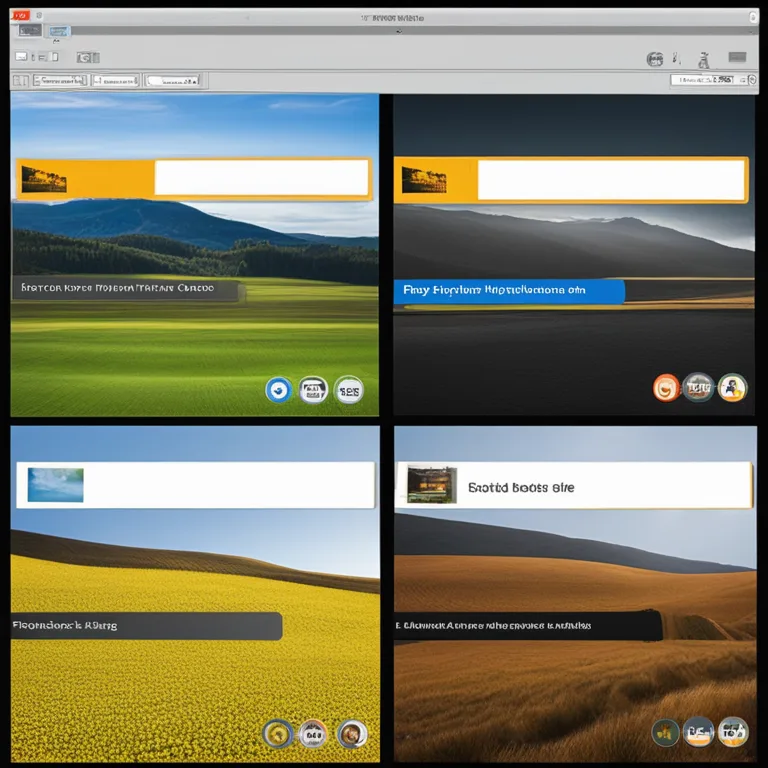
Mindfulness Meditation for Daily Harmony
Embrace tranquility and enhance self-awareness with practical mindfulness meditation techniques tailored for modern living.
article by Hina Kurosawa
What is Mindfulness Meditation?
Mindfulness meditation is a mental practice that involves focusing on your present experiences and training your mind to be fully present in the moment. Unlike some traditional meditation practices, which may require significant time commitment or specific postures, mindfulness can be integrated into daily life with ease. Accessible to anyone, regardless of their spiritual beliefs or lifestyle, its roots stem from ancient practices but have been adapted for contemporary society. Modern iterations emphasize simplicity and the cultivation of a nonjudgmental awareness of thoughts, feelings, and surroundings.

Cultivating a Practice
To begin with mindfulness meditation, finding a consistent time and quiet space can help facilitate a daily practice. However, you don't need a dedicated room or hours of free time; even five minutes can be beneficial. The key is regularity and intention. Start by taking a comfortable seat, closing your eyes, and concentrating on your breathing. As you become more accustomed to this habit, you can expand the duration and incorporate mindfulness into routine activities such as eating or walking.

Benefits of Mindful Living
The benefits of a consistent mindfulness meditation practice are extensive and backed by contemporary scientific research. Regular practitioners often experience reduced stress levels, improved emotional health, and enhanced cognitive function. By bringing mindfulness into your daily regime, you may notice an improved capacity for empathy, creativity, and patience. Mindfulness can also contribute to a more harmonious life by improving relationships and promoting a balanced approach to life's challenges.

Overcoming Common Hurdles
One of the most significant challenges facing individuals new to mindfulness is the frustration of dealing with distractions and wandering thoughts. When this occurs, gently acknowledge the diversion and redirect your focus to your breath or chosen point of concentration. This acceptance and redirection is, in fact, a crucial part of the practice. Over time, you'll find that your ability to maintain focus and return from distractions will improve.

Mindfulness in Everyday Activities
Mindfulness meditation doesn't stop with the formal practice. You can incorporate mindfulness into nearly every aspect of your day. Take, for instance, mindful eating – paying close attention to the taste, texture, and sensations of your food, or mindful walking – being fully engaged with each step and the environment around you. These everyday activities become opportunities to connect with the present moment and enrich your experience of life.
Adapting Mindfulness for Modern Challenges
In our rapidly evolving world, mindfulness has found new applications, helping many cope with the constant influx of information and sensory input characteristic of modern life. Mindfulness apps and online courses have become popular, offering guided meditations and exercises specifically designed to counterbalance digital overload, improve sleep quality, and manage social media-induced anxiety. As society continues to change, mindfulness remains a versatile and vital tool for maintaining mental well-being.
Published: 1/8/2024
Modified: 1/8/2024
More predictions
Come back here soon to learn more about yourself and your future


Meditation Basics: Tips for Inner Peace and Focus
Discover practical meditation tips and techniques to foster inner peace and enhance focus in your daily life.


The Power of Meditation: Enhancing Life with Inner Peace
Discover the profound benefits of meditation techniques for mental clarity, emotional balance, and overall wellness.


Meditation and Depression: A Path to Healing
Discover the potential of meditation as a complementary treatment for depression, delving into how mind-calming practices might offer a beacon of hope for those seeking relief.